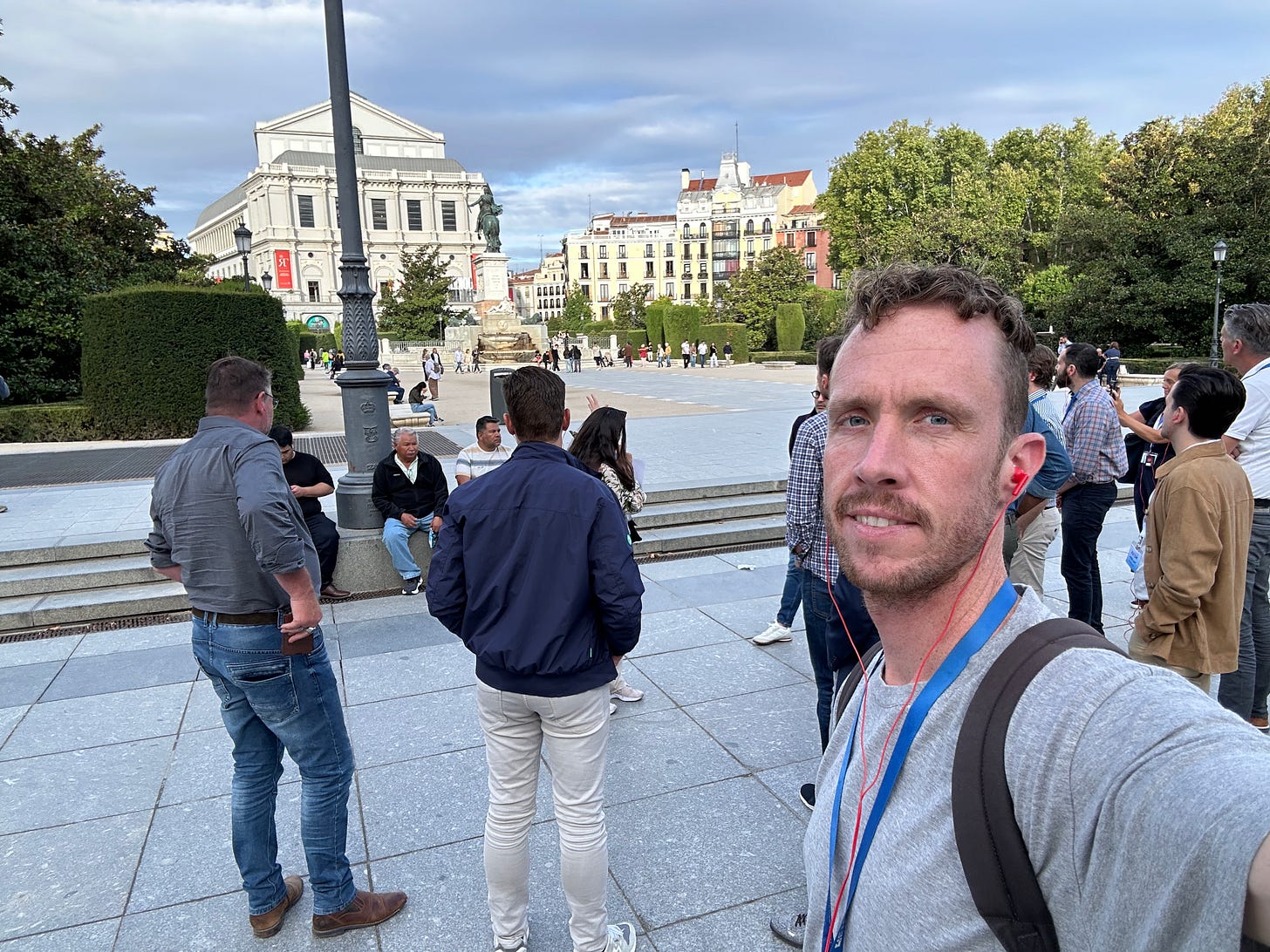Hey there,
When I was 10 years old, I pretended to be a scientist. Not a soldier, firefighter, or professional soccer player.
Here’s how it went: my brother Jeroen would ask me a question, like, "How many cows are there in the Netherlands?"
I would write the question down on a piece of paper and ride my bike to the library in the village. I would wander through the books to find the answer to my brother’s questions.
I loved it. Walking through a space with so much knowledge packed into all those books!
Note: this was before the internet and Google 🤓
In a way, this resembles my current work as a futurist. An organization asks me what the future of their company, institution, industry, or society looks like. I conduct my research and present it on stage. Or, I explore it together with them in a workshop.
This childhood memory, where I was already fascinated by acquiring and sharing knowledge, has never completely left me. So, how do you organize knowledge in the right way, especially now in the digital age?
That’s why the theme of this newsletter is the future of knowledge management and learning organizations.
Enjoy the read,
Peter
PS. Knowledge management is a key part of my new keynote Foresight Innovation.
PPS. If you prefer watching, I made a video about learning organizations and personal knowledge management:
The Blind Spot of Knowledge Management
Knowledge management is the systematic collection, organization, sharing, and use of knowledge. It’s not an end in itself. Ultimately, an organization structures its knowledge management to make better decisions and innovate faster.
During my Business Administration studies, I took a few courses in knowledge management. Those insights have long since faded from my memory, but I can still remember the most well-known academic in this field: Professor Matthieu Weggeman.
Magical Formula
In 1997, Weggeman defined a formula for knowledge:
Knowledge = Information x Experience, Skills, and Attitude
In short, knowledge is more than just information. It’s a combination of information with someone’s experience, skills, and attitude.
For example, if you want to acquire knowledge about playing the piano, it helps to read a book on how to do it (information). But then you have to practice, gain experience, and have the desire to keep improving (attitude). That’s how you build useful knowledge about playing the piano.
The same goes for knowledge about a production process, a service, a customer, or a policy area. It’s always a combination of information with someone’s experience, skills, and attitude.
Common Mistake
Weggeman’s formula shows how closely knowledge is tied to an individual. It’s always about someone’s unique experiences, skills, and attitudes.
But I often see that knowledge management in companies and governments is only approached from the perspective of information. Simply put, the common mistake is: “If we set up systems where the relevant information can be found, we’ve got knowledge management right.”
In my opinion, this overlooks the blind spot of knowledge management: the experience, skills, and attitude of the person acquiring, sharing, and using the knowledge. That’s when information truly becomes valuable.
The solution? Give employees more freedom in how they want to organize their knowledge. That’s personal knowledge management.
My New Hobby: PKM
The term personal knowledge management, or PKM, is the latest trend among productivity nerds like me.
My girlfriend Susan sighs that PKM is my new hobby—especially when I tell her about a new plugin for my favorite tool, Obsidian.1
The definition of PKM is:
Personal knowledge management (PKM) is a process of collecting information that a person uses to gather, classify, store, search, retrieve, and share knowledge.
Compared to classic knowledge management, employees have more autonomy in PKM—autonomy in how they organize their work, store knowledge, and what systems they use.
I believe this fits much better with Weggeman’s formula. The more freedom you give people in organizing their knowledge, the better they can align information with their own experiences and skills. Plus, for many highly educated knowledge workers, that autonomy makes their work more enjoyable (attitude).
Deep Dive
Articles, books, podcasts, videos, documentaries, and more on this theme.
1. READ / The book Grip by Rick Pastoor is a good starting point if you want to know more about personal knowledge management. For example, you’ll gain insights into how to organize information and tasks systematically.
2. DO / On May 14 & 15, 2025, the second PKM Summit will take place in Utrecht, the Netherlands. Are you intrigued by the concept of personal knowledge management? Then come to the Summit. I’ll be there too.
3. WATCH / While writing this newsletter, I thought of the series The Office (9.0 on IMDb). In this short clip, boss Michael tries to teach his employees Dwight and Jim how to sell better over the phone. Brilliant.
🙏 Thank you for reading
This newsletter is free, but not cheap to make.
You can help me in a number of ways: forward this newsletter to someone who likes it, subscribe to my YouTube-channel, or hire me to speak.
Interested to hire me? Feel free to fill this form!



